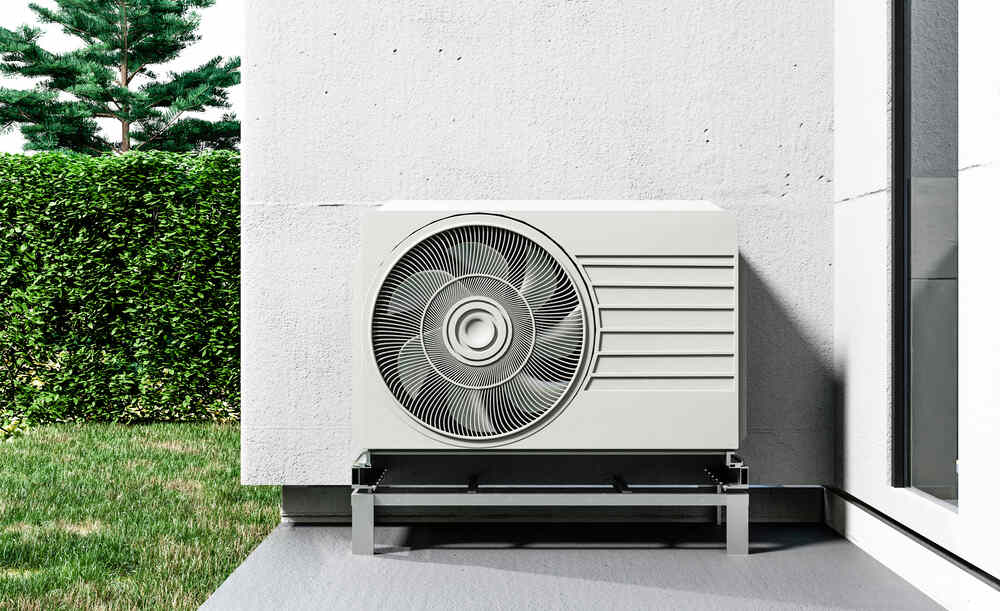What are Air Conditioning Myths? Simple misperceptions about the usage of the air conditioner, the myths say that following them leads to faster and efficient cooling. However, believers of the myths are unaware that they actually raise electricity bills! Today, we consider three popular myths and then debunk them.
Firstly, the most common of all Air Conditioning Myths is that a low thermostat setting leads to faster cooling. However, in reality, air conditioning speed remains unaffected by thermostat temperature. A low thermostat setting only results in a lower temperature than required, since the air conditioner is working harder. An exception to this myth is if the particular air conditioner you own has “low, medium and high” options instead of thermostat settings. In this case, selecting the “high” option will indeed lead to increase in cooling speed.
Moving on, the second most common myth is that positioning of the air conditioner has no effect on cooling. However, fact is that placement is a major determinant of efficient cooling. For instance, an air conditioner surrounded by heat producing appliances will work longer than necessary, for the temperature in its vicinity is higher than room temperature. Another example is of a conditioner encircled by objects hampering air flow, yet again causing it to work harder than required.
The last myth under consideration is that the air conditioner should be left running in a temporarily unoccupied space, because switching it on and off wastes energy. But truth is that this only causes the air conditioner to overwork. Instead, the efficient method would be to set a timer on the conditioner so that it begins cooling before the return of the household.
To summarize, we have revealed that; i) low thermostat setting does not result in faster cooling, ii) positioning of the air conditioner does matter, iii) leaving the air conditioner on, is not energy efficient. By avoiding these Air Conditioning Myths, you may lower your electricity bill until it reflects the actual cost of cooling. If you found our advice useful, follow us for more great articles on heating, air conditioning and home needs!
Frequently Asked Questions
1. Does lowering the thermostat cool the room faster?
No, lowering the thermostat doesn’t make your room cool faster. It only forces your air conditioner to run longer, which can increase energy consumption. The cooling process depends on your AC’s power, not the temperature setting. In fact, setting your thermostat too low could increase your energy bill by up to 5% for each degree.
2. Is it true that air conditioner placement doesn’t affect its performance?
Placement absolutely matters! If your AC is installed near heat-generating appliances or in direct sunlight, it will work harder to cool the space, leading to inefficiency. Studies show that improper AC placement can increase energy use by 10-15%. Make sure your unit has proper ventilation and isn’t surrounded by heat sources.
3. Is it cheaper to leave the AC on all day than turning it on and off?
No, leaving your air conditioner on all day can actually waste more energy. It’s more cost-effective to turn it off when you’re not home and use a programmable thermostat to start cooling before you return. This method can reduce energy costs by 10-30% annually.
4. Does closing vents in unused rooms save energy?
Closing vents in unused rooms may seem like a good idea, but it can actually cause your AC system to work harder. This is because modern air conditioning systems are designed to cool the entire home evenly. Blocking vents can create pressure imbalances, potentially damaging the system over time.
5. Is bigger always better when it comes to air conditioners?
No, an oversized air conditioner may cool the room faster, but it won’t effectively remove humidity. This can leave your space feeling cold and clammy. Plus, short cycling (frequent turning on and off) reduces the AC’s efficiency and lifespan. It’s essential to choose the right size for your space.
6. Does setting the fan to ‘ON’ improve energy efficiency?
Setting the fan to “ON” continuously can actually waste energy. The “AUTO” setting is more efficient because the fan only runs when the air conditioner is actively cooling. Using the “AUTO” setting can save you up to 20% on energy bills annually.
7. Can ceiling fans cool down a room?
Ceiling fans don’t cool the air; they only move it around, making you feel cooler by evaporating sweat on your skin. This sensation allows you to raise your thermostat by 4°F without sacrificing comfort, reducing energy costs by around 5-10%. Just remember to turn off the fan when you leave the room, as it doesn’t actually lower the room temperature.
8. Does leaving windows open help cool the house faster?
Leaving windows open while your air conditioner is running will counteract the cooling process and make your AC work harder. Open windows allow warm air to enter, which forces the system to run longer, leading to higher energy costs. Sealing windows and doors can improve AC efficiency by 15-20%.
9. Is maintenance unnecessary if the air conditioner is working fine?
Routine maintenance is crucial, even if your AC seems to be working well. Regular tune-ups, such as changing filters and cleaning coils, can improve efficiency by up to 15%, preventing costly breakdowns later. Skipping maintenance can lead to reduced performance and higher energy bills.
10. Can an air conditioner make you sick?
An air conditioner itself doesn’t make you sick, but poor maintenance and dirty filters can circulate dust, mold, and bacteria, which may aggravate respiratory issues or allergies. Changing filters regularly and keeping your AC clean can reduce these risks. Proper maintenance keeps your indoor air quality safe and healthy.



